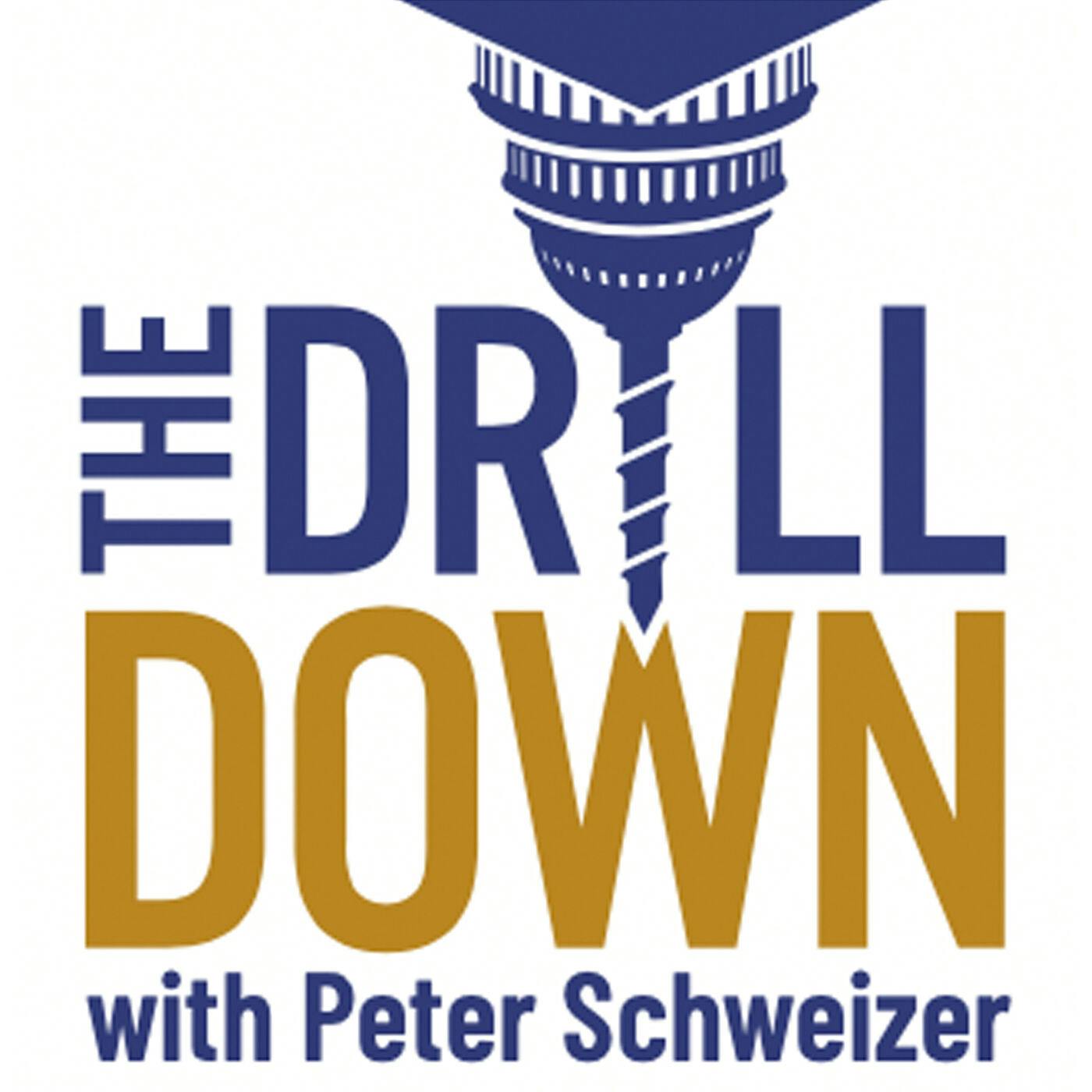

The Drill Down with Peter Schweizer
Government Accountability Institute
Peter Schweizer is the author of, among other books, "Clinton Cash," "Extortion," "Throw Them All Out," and "Architects of Ruin." He has been featured throughout the media, including on "60 Minutes" and in the "New York Times." He is the cofounder and president of the Government Accountability Institute.
Episodes
Mentioned books

Jan 28, 2026 • 24min
Schweizer One Million Chinese “US Citizens”
In its first week, Peter Schweizer’s new book, The Invisible Coup, is the number one book in the country. A little celebration might be in order, but Schweizer and co-host Eric Eggers relate the book’s blockbuster revelations to what is happening now in Minneapolis. Why is ICE even there in the first place? The Department of Homeland Security said its largest immigration enforcement operation ever, called “Operation Metro Surge,” was tied in part to allegations of fraud involving Somali residents, which The DrillDown has discussed previously. Massive defrauding of aid programs including daycare, food, housing, and ambulance services was perpetrated largely by Somalis living in the Minneapolis-St. Paul area.

Jan 21, 2026 • 30min
The Invisible Coup - Weaponized Migration in America
The Invisible Coup - Weaponized Migration in America

Jan 14, 2026 • 25min
Credit Policy and Avoiding “Big Vito”
To respond to “affordability issues,” the Trump administration floated 50-year mortgages for buying homes. Last week, Donald Trump suggested capping credit card interest rates at 10 percent. Financial writer and two-time New York Times bestselling author Carol Roth thinks both are a “terrible idea.” She joins The Drill Down to discuss good financial sense.

Jan 8, 2026 • 34min
Minnesota’s Fresh New Fraud Hell – Ballot Cheating?
The story of welfare fraud in Minnesota keeps getting bigger. And no one in state government has worked harder and longer trying to sound the alarm about it than state Sen. Steve Drazkowski. He joins The Drill Down to discuss the growing evidence of widespread fraud in his state that may include not only welfare and child care fraud but vote fraud as well. Minn. Gov. Tim Walz, who was the Democrats’ vice-presidential nominee in 2024, just abandoned his bid for a third term in the wake of the growing scandal, which exposed potentially billions of dollars in fraud committed mostly by Somalis in the Minneapolis area through fake feeding programs, daycare centers, and other social programs. Reporters have also identified political contributions to many of the state’s most prominent politicians from Somali immigrants who have been implicated and/or prosecuted in the scams.

Dec 23, 2025 • 48min
2025 Highlights
2025 Highlights

Dec 17, 2025 • 26min
Guardrails
Massive welfare fraud in Minnesota by Somali immigrants was not supposed to happen because of government “guardrails.” Political violence by an Afghan refugee was not supposed to happen because such people were vetted before being allowed into the US. And voter fraud won’t be a problem because there are safeguards to prevent it. Those three separate issues all prompt us to ask… What happens when those “guardrails” are missing, the “vetting” is left undone, or the “safeguards” ignored?

Dec 10, 2025 • 29min
Legal or Illegal - The Debate on Military Strikes
Legal or Illegal - The Debate on Military Strikes

Dec 3, 2025 • 28min
Unmasking Welfare Fraud -The Minnesota Scandal and Its Implications
Unmasking Welfare Fraud -The Minnesota Scandal and Its Implications

Nov 26, 2025 • 22min
Thanksgiving Politics - A Family Affair
Thanksgiving Politics - A Family Affair

Nov 19, 2025 • 25min
Unpacking the Arctic Frost Investigation Political Scandal
Unpacking the Arctic Frost Investigation Political Scandal


